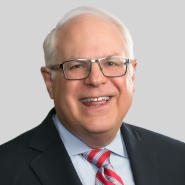Weil Brown settles immigration case with USCIS, thousands awaiting printed permits can work
Weil Brown immigration partner Rob Cohen announced a settlement in a case that immediately impacts thousands of foreign workers residing in the United States. On Friday, Aug. 21, 2020, Chief Judge Algenon Marbley of the United States District Court for the Southern District of Ohio ordered the U.S. Citizenship and Immigration Service (USCIS) to permit thousands of foreign nationals to work in the U.S. before they receive printed Employment Authorization Documents (EADs). These workers had already been approved to work by USCIS, but they had not received the EADs they must provide to their employers. Although these cards are usually issued within a few days of approval of an application for employment authorization, USCIS had slowed down its production of them earlier this year.
The lead client, Ranjitha Subramanya of Columbus, has lived and worked in the U.S. for several years. Ms. Subramanya, a native of India, needs USCIS to renew her employment authorization on a regular basis. USCIS notified Ms. Subramanya that her renewal application was approved in April 2020, but did not provide her EAD. Without an EAD, Ms. Subramanya had to stop working in June and was informed she would lose her job permanently in August. National media reported she was one of 75,000 foreign workers with employment authorization who nevertheless could not work because they were awaiting production of their EADs.
Weil Brown pursued efforts with the USCIS without resolution. Then, the firm filed a class action lawsuit on behalf of Ms. Subramanya and other foreign nationals.
After Judge Marbley ordered USCIS to produce the EADs for the plaintiffs, the parties reached a settlement. USCIS agreed to expedite production of the EADs on a strict schedule that should clear the backlog by early October. In addition, USCIS posted a notice on its website that advises workers, their employers and prospective employers that their approval notices would temporarily operate as valid documentation of employment authorization. This interim measure allows individuals who have been waiting for their EADs to begin or continue working immediately, before their EADs arrive.
“A printing backlog should never prevent foreign nationals from working when they are already approved to legally work in the U.S.,” said Cohen. “We are thrilled we could help our client and thousands of other workers across the U.S. by getting this situation resolved.”
Weil Brown team: Rob Cohen, Caroline Gentry, Dave Shouvlin, Ana Crawford, and Kirsten Fraser.




